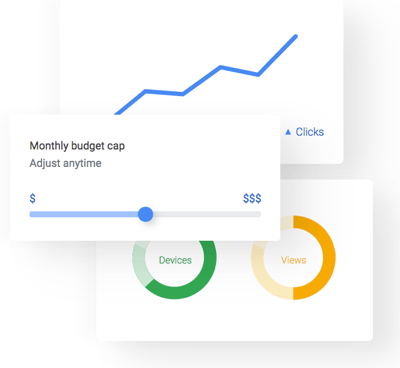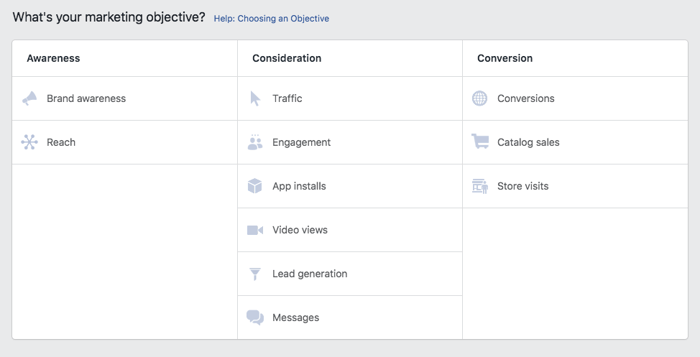Budgeting for Digital Ads: How Much Should I Spend?

Google Ads
 It's common for people to inquire about a recommended advertising budget because pay-per-click is unlike any other type of advertising. The platform is set up as an auction marketplace, so there are many aspects to consider before landing on a set budget.
It's common for people to inquire about a recommended advertising budget because pay-per-click is unlike any other type of advertising. The platform is set up as an auction marketplace, so there are many aspects to consider before landing on a set budget.
It's first important to set the context. Ask yourself what you're expecting to get out of Google Ads. Know your goal for traffic and/or lead generation. If the goal is lead generation, the next step is to ask yourself how much you think a potential customer is worth to your business. That will help you determine your intended cost-per-conversion. It's also recommended that you take inventory of your website visitor-to-lead conversion rate. If your site is converting at 1.5%, for example, take that into consideration as you plan for cost-per-click and cost-per-conversion.
Looking at your industry, understanding the competition, and thus price behind certain keywords, will also set the stage for performance. You could end up paying anywhere from $1 to $50 a click, depending on your keyword targets. Some of the most expensive keywords are surrounding financial services, HVAC, plumbing and locksmiths. We utilize tools like the Google Keyword Planner and SEMRush to determine competitiveness of keywords and set our partners up for success. We also like to get a sense of location targeting as we work with partners to develop a sold budget.
You might be tempted, after you've set the stage for potential performance, to start small with Google Ads. However, because competition plays a major role in your advertising performance, a small budget will not translate well. Competitors could have a pay-per-click budget four times yours, seriously limiting your chance at a top paid placement. Your monthly advertising budget will depend on your industry, but we recommend no less than $1,000/month. Think of pay-per-click advertising as an investment, rather than an expense.
Aside from budget, the other determinant of Google Ad performance is Quality Score. If you've been told that the biggest budget always wins out, you've been misinformed. Google looks at your Quality Score, max cost-per-click and ad placements to determine your Ad Rank. If your Ad Rank is not high enough, Google will not show your ad. A good Quality Score comes from a great user experience and solid reputation. So If you have a great business and user-friendly website, Google Ads will be solid investment. Conversely, if you're having a tough time driving leads and revenue for your business through other digital tactics, Google Ads likely won't work for you.
For many businesses, Facebook and Instagram advertising are a supplement for pay-per-click. We hear, "Well, I've seen success with Google Ads, what's next?" While Facebook advertising can be a great next step for lead generation, the platform is quite different than Google Ads. For one, you are not bidding on keywords, you are competing for impressions, visits and leads from a specific audience.
Unlike Google Ads, it's okay to dip your toe in the Facebook advertising water to determine potential performance. Facebook representatives will recommend that you invest a couple thousand a month, however, we recommend that you start slow and analyze performance closely. Look at your marketing objectives, and launch different types of campaigns to determine what works for your brand. That could mean $300/month on a traffic-based campaign or $500/month on a conversion-focused campaign. Regardless of whether your goals are around traffic or lead generation, we strongly encourage running Facebook campaigns through Ads Manager. Many businesses are tempted to start with Boosted Posts as entry to a Facebook advertising test, but the objective around Boosted Posts is engagement, and I think it's safe to assume that Facebook Likes and shares are not the biggest drivers of revenue for your business. Stick to campaigns in Ads Manager.

As you consider Facebook advertising for your business, avoid landing on an arbitrary budget, and instead be thoughtful for how you will test the platform. Some experts recommend that you should spend $1 for every 100 monthly website visitors. This is a conservative approach, but will help you determine what works well. We have some partners that spend $1,000+/day and we have some that invest a couple hundred every month.
With well-thought-out advertising budgets for Google Ads and Facebook, you have the potential to see a great return on investment. Google has said that the average advertiser makes $2 for every $1 spent in their platform. Hiring an agency to manage your digital advertising accounts will help you avoid common mistakes and set you up for the best possible ROI. Schedule a free pay-per-click or paid social consultation to learn more about lead generation for your business.

January 31, 2019